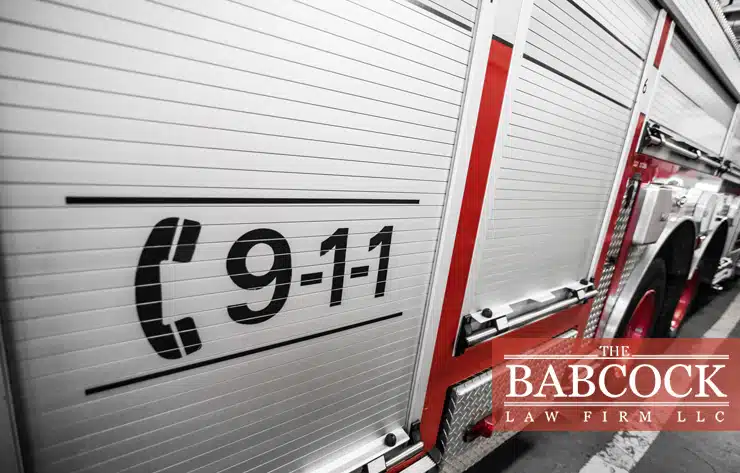Workers’ Comp for Teachers With PTSD After a School Shooting
Can teachers who witness school shootings get workers’ compensation for PTSD in Colorado?
School shootings have become a source of anxiety for many teachers, students and their parents. According to the U.S. Center for Homeland Defense and Security, since the year 2000, there have been between 11 and 93 school shootings in the U.S. annually, and these numbers are on the rise. The majority of incidents take place at high schools, but middle and elementary schools are also affected.
Students, however, aren’t the only ones impacted by school shootings. Teachers have also been victims, and even those who survive physically unscathed can be left dealing with psychological consequences like post-traumatic stress disorder (PTSD).
In some cases, teachers who witness school shootings might be entitled to workers’ compensation benefits.
Is PTSD Covered Under Colorado Workers’ Compensation Laws?
If you experience PTSD after an accident covered by workers’ comp, you may be wondering whether you’re eligible to receive compensation for this trauma.
The increase in school shootings
Gun violence at schools has been tracked by the K-12 School Shooting Database since 1970. Despite the name, it isn’t solely focused on school shootings; it also includes things like suicides, gang violence, and firearms discharged at sporting events. It was created with the purpose of documenting “the full scope of gun violence” on K-12 campuses.
According to the statistics, there were less than 50 incidents per year until 2006. After that, with the exception of a few outlying years, gun-related incidents at schools have seen a steady rise.
There were more than 100 incidents of gun violence in 2018. In 2022, there were almost 300.
Another worrying statistic is how much more dangerous school shootings have become.
In 2018, a reported 218 people were injured or killed by gun violence on school campuses. In 2022, that figure jumped to 327.
When all of the data is taken together, it’s clear that school shootings have dramatically increased in both frequency and severity in the past 10 years.
How some teachers cope with school shootings
Teachers are often left struggling to cope in the aftermath of a school shooting. Not only do they suffer their own trauma, but they’re responsible for looking after equally traumatized students, too. This leads to all-too-common scenarios where teachers ignore or de-prioritize their own mental health for the sake of their students.
Some turn to therapy to try and heal. Some become advocates for gun control or classroom safety training. A growing number are simply quitting the profession and never going back.
Teachers and firsthand trauma
Firsthand trauma occurs when a person directly experiences a traumatic event. In the case of a school shooting, it describes the teachers and students who are actually on campus when it happens.
It’s not uncommon for witnesses of a traumatic event to develop PTSD. Symptoms can vary, but they might include:
- Intrusive memories, flashbacks and nightmares of the trauma
- Overly emotional responses to everyday events
- Self-destructive behavior
- Difficulty maintaining relationships
- Detachment or numbness
- Physical health problems manifested from emotional trauma
An important note about trauma is that it doesn’t have to result in physical injuries. Teachers can have trauma from a school shooting even if they were able to run, hide or escape without getting physically hurt. Their fear for their lives and the lives of their students is what creates the actual trauma.
Teachers and secondary trauma
Secondary trauma stress, also known as vicarious trauma, is when a person is deeply affected by the trauma of someone else. It’s more than just empathy; It’s a debilitating condition that can manifest as PTSD and other disorders.
Teachers can develop both firsthand and secondhand trauma after a school shooting, especially if they return to work and are forced to relive it through the accounts of students, staff and fellow teachers. They can also struggle to cope with secondary trauma if it becomes a news story in their hometown.
Workers’ compensation for teachers
As a general rule, teachers are entitled to workers’ compensation just like any other professional. If they’re injured or disabled on the job, they can apply for benefits that include:
- Lost wages. Teachers are entitled to two-thirds of their average weekly wages while they’re unable to work because of an on-the-job injury or illness.
- Medical expenses. This includes coverage for all necessary medical expenses, including doctor appointments, emergency room visits, medications, rehabilitation, hospital stays, etc.
- Death benefits. These are available to certain dependents if a teacher dies because of a work-related injury or illness.
Getting workers’ comp benefits after a school shooting can be more complicated than cases that involve a simple physical work injury, but an experienced workers’ compensation attorney can inform you of your rights and assist you in obtaining the compensation you need.
Steps to getting workers’ comp for PTSD after a school shooting
It’s important to understand what steps you need to take to get PTSD workers’ comp benefits for teachers. Every state is different, but in Colorado, the law is clearly outlined by the Colorado Workers’ Compensation Act.
- Seek medical treatment. The first step is seeking treatment for your PTSD. This will provide the paper trail that you’ll need for filing your workers’ compensation claim. It’ll also start to determine the shape of your settlement as you figure out what treatments you need, how much they’ll cost, and how your future employment at the school might be affected by your diagnosis.
Keep in mind that in order to get workers’ comp benefits for PTSD, you’ll need to obtain a PTSD diagnosis from a medical professional. You’ll also need to prove that your PTSD was caused by your job. Seeking medical attention as soon as possible after a traumatic event will make it much easier to tie your PTSD to the event and recover compensation. - Notify your employer. The next step is notifying your employer. In most cases, you are required to notify your employer in writing within 10 days of an injury or illness. While there are some exceptions, it’s best to notify your employer right away if you believe you may be experiencing symptoms of PTSD, as waiting longer than 10 days could negatively impact the amount of compensation you can receive.
- File a claim. Last but not least, you’ll want to file a claim for workers’ comp. This must be done within 2 years, or you will NOT be permitted to recover ANY compensation. Expect the school’s insurance company to push back on this by asking for your medical records, proof of your PTSD diagnosis, and proof of the school shooting that led to it.
- Consult an attorney. An experienced workers’ comp attorney can help you navigate these legal waters and recover the compensation that you deserve after your traumatic event.
Reporting an Injury at Work in Colorado [Quick Guide]
How long do you have to report an injury at work or occupational illness? Colorado workers’ compensation attorney Mack Babcock explains the steps.
Get help from an experienced Colorado workers’ compensation attorney
At The Babcock Law Firm, we believe everyone is entitled to work in an environment where they feel safe and secure. If you’re a teacher who lived through a school shooting and is suffering from symptoms of PTSD, you deserve compensation and support to help you through this difficult time.
Our experienced workers’ compensation attorneys specialize in workers’ compensation cases, making sure hard-working Coloradans receive the compensation they deserve after a mental or physical workplace injury or illness. Contact us today for your free consultation.
Colorado 911 Operators Now Protected
by Workers’ Comp for PTSD
Thanks to the 2020 bill, 911 operators, who are daily exposed to “audible psychological trauma” from the calls they take, are eligible for workers’ compensation if they develop PTSD as a result of their job.




